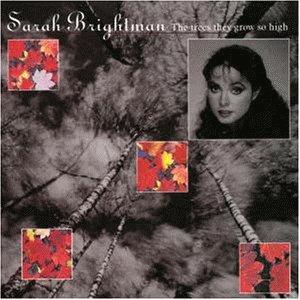
| Artist: | Sarah Brightman |
| Title: | Trees They Grow So High |
| Released: | 1998.09.15 |
| Label: | EMI Classics |
| Time: | 52:42 |
| Producer(s): | John Frazer |
| Appears with: | |
| Category: | Classical |
| Rating: | *********. (9/10) |
| Media type: | CD |
| Purchase date: | 2001.09.04 |
| Price in €: | 10,83 |
| Web address: | www.sarah-brightman.com |